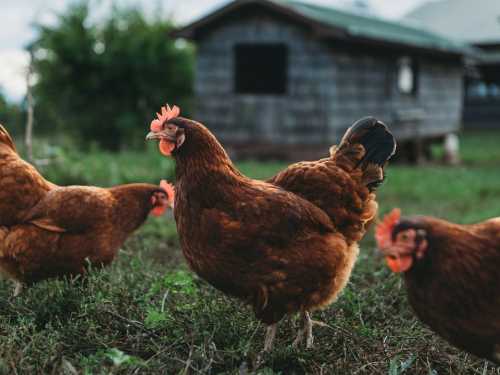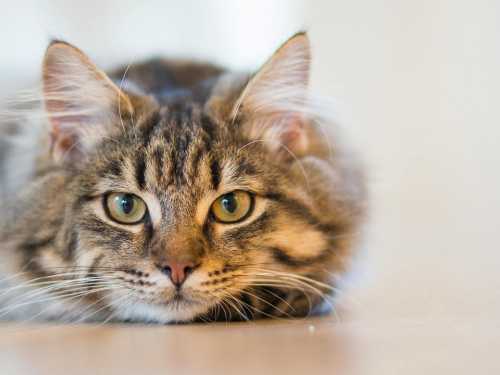
It would seem that there is nothing complicated about it: I poured in grains, gave them some herbs, and everything was fine. But there are products that may not be at all useful for chickens, and sometimes even dangerous.
Salty food
The first thing to remember: salt in food is not for chickens. If you think that leftover soup or borscht is a great food, then this is not so. Chickens do not tolerate salty food well, because their need for salt is much lower than that of humans. Excess salt can cause them serious problems, up to salt poisoning! Yes, chickens need salt, but in very low proportions, which they can get simply from ready-made compound feed, as well as from fresh vegetables in the form of sodium and chlorine compounds.
Products with mold and rot
Honestly, sometimes we may think: “Well, let’s not throw away the moldy bread crust!” But moldy and rotten food is definitely not an option for chickens. There is mold that is useful, but mold on products is solid mycotoxins that can cause poisoning and even death in birds. Agricultural enterprises are struggling with the formation of mycotoxins in feed with all their might, and you yourself give them to chickens! Therefore, moldy products are taboo for chickens!
Avocado
This scary beast is Avocado! For humans, it is a superfood, but for chickens, it is a real enemy. It contains a toxin called persin, which is dangerous for birds. Persin poisoning kills a bird within two days. If your chickens try avocado, it can lead to heart and breathing problems and even death.
Raw potatoes and green tops
Now, attention, potatoes! If we talk about raw potatoes, then they contain a lot of starch, which negatively affects the digestion of chickens and causes bloating. Green skin (even boiled) and potato tops are strictly prohibited. They contain solanine, which is a toxin. It causes poisoning in chickens. Therefore, it is advisable to give potatoes to chickens only in boiled form and no green parts!
Citrus fruits
Yes, many fruits are wonderful treats, but there are some nuances with citrus fruits. Oranges, lemons, and tangerines contain a lot of acid, which in large quantities can irritate a chicken's digestive system and cause upset. However, this is not a strict ban. Citrus fruits are not toxic to chickens, and an occasional small piece of orange or tangerine peel will not harm them. Most chickens will not eat them in large quantities anyway because of the sour taste. Therefore, you should not make citrus fruits the mainstay of the diet.
Milk
Chickens, oddly enough, do not tolerate whole milk. Although fermented milk products are shown to them, such as soft cheese, whey, yogurt! But with milk everything is different: pure lactose contained in milk is practically not digested by the chicken body. Worse, it can cause diarrhea in chickens, as well as other digestive problems. Therefore, whole milk is not useful for chickens.
Hard cheese
When it comes to cheese, it is important to specify what kind. The hard cheese we are used to from the store is not the best product for chickens. It usually has a high concentration of salt and fat, which is harmful to birds and creates a burden on their digestive system. However, if we are talking about low-fat and unsalted varieties, for example, homemade cottage cheese, then it, on the contrary, is a useful source of protein and calcium. So, the main rule is to avoid salty and fatty types of cheese.
Chocolate
Chocolate is prohibited not only for chickens, but for animals in general. It contains theobromine, which is a toxin for them. Chickens die within a day from eating chocolate. Chickens may start having convulsions, vomiting, and tachycardia.
Sweets
Sweet foods are not only bad for chickens' digestion, but can also cause serious heart problems. Sweets cause dysbiosis in chickens, as well as metabolic problems. If even sweets are not good for humans, what can we say about birds!
Freshly harvested grain
Grain is the main feed for chickens, but there are nuances here too. As a rule, grain is harvested when it is in the so-called “technical ripeness”, that is, slightly immature. Freshly harvested grain, especially if it has not yet had time to dry properly, can be dangerous for chickens, as it contains a number of substances that inhibit the absorption of nutrients. These substances are also called anti-nutrients. Over time, these substances break down and the grain can be fed. Therefore, fresh grain must be aged.
Fresh bread
Despite the fact that bread is a product made from grain, fresh bread (especially yeast bread) can swell a lot in the stomach of chickens, which will lead to bloating and indigestion. In addition, bread crumbs clog the intestines and the chicken may die. It is best to feed birds with breadcrumbs, but in moderation, so as not to upset the nutritional balance.
So, let's summarize. Although chickens are unpretentious in food, it is worth monitoring their diet. Chickens are not garbage dumps for recycling waste. They need safe products to be healthy and productive. Then your chickens will delight you with delicious eggs and a good mood!





